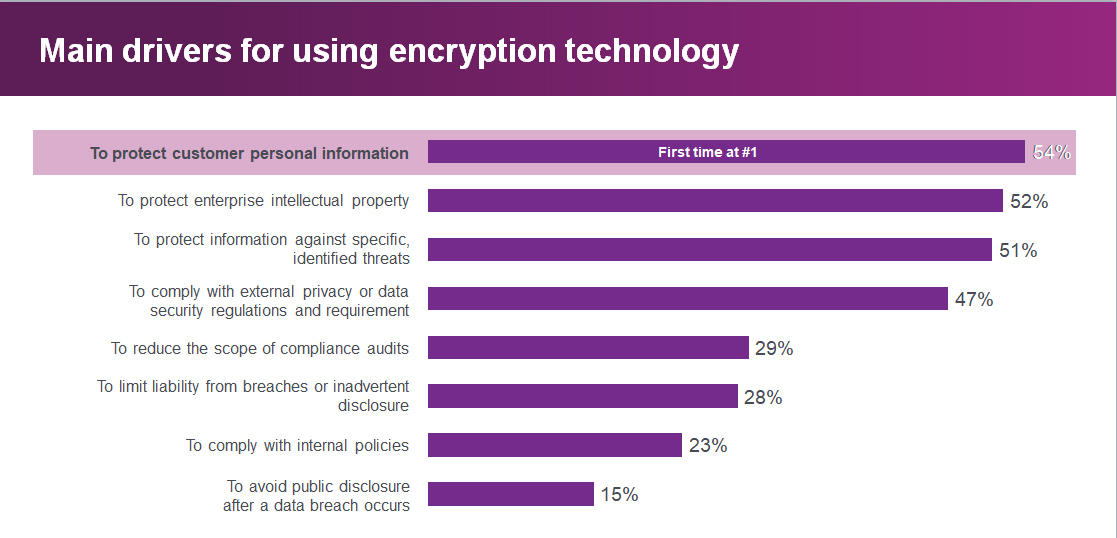For the first time ever, results show encryption is being used to protect personal customer data rather than to just meet compliance mandates. Ponemon Institute and nCipher presented the findings of the 2020 Global Encryption Trends in their comprehensive study. They surveyed 6,457 individuals across multiple industry sectors in 17 countries – Australia, Brazil, France, Germany, Hong Kong, India, Japan,
Mexico, the Middle East, Netherlands, the Russian Federation, Southeast Asia, South Korea, Sweden, Taiwan, the United Kingdom, and the United States.
The Study shows there has been steady increase of use of encryption in all industries, except of healthcare and pharma. The most significant increase occur in manufacturing, hospitality and consumer products.
The main driver for encryption is the protection of customer’s personal information. 54% of organizations are using encryption for protection of customers’ personal information and 52% of them are using the protection of enterprise intellectual property. 51 % of respondents are using protection against specific, identified threats. Yet still, employee mistakes continue to be the most significant threats to sensitive data (exposure of sensitive or confidential data).
A barrier to a successful encryption strategy is the ability to discover where sensitive data resides in the organization.
And last but not the least, payment-related data and financial records are most likely to be encrypted as a result of high profile data breaches in financial services. The least likely data types to be encrypted are nonfinancial business information and health-related information. It’s hard to tell why health information are often not encrypted, knowing the sensitivity of the topic. You can find whole Study „2020 Global Encryption Trends Study“ on this link – https://tinyurl.com/y7vjayh8.




